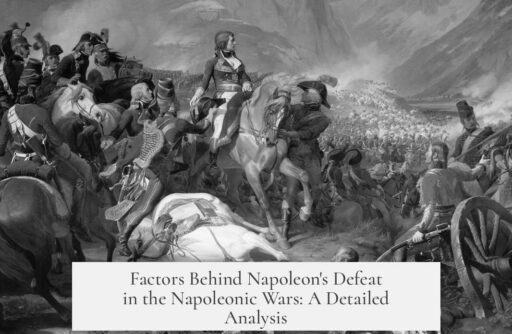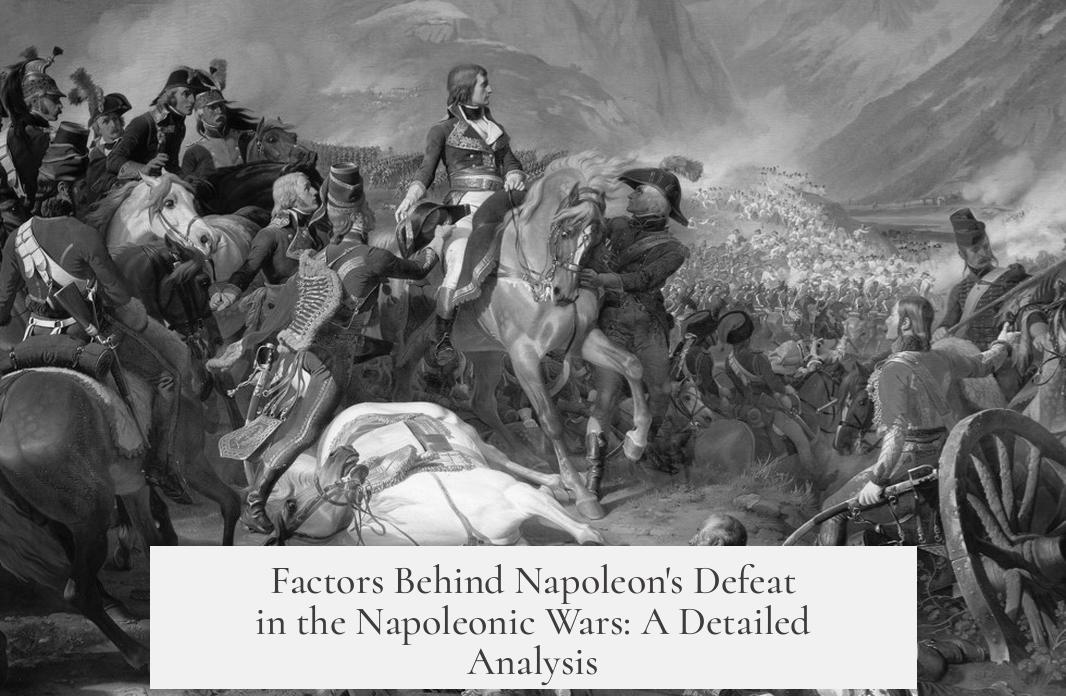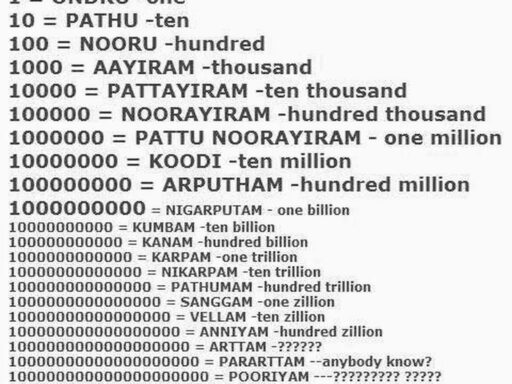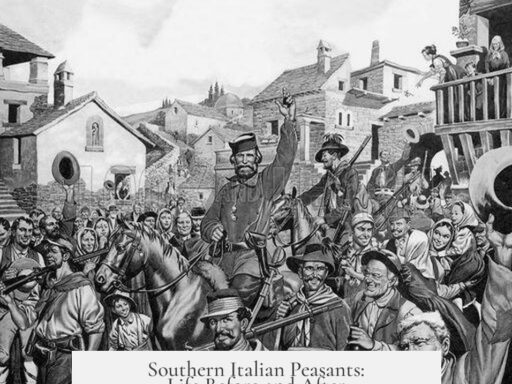Napoleon ultimately lost the Napoleonic Wars because of a complex mix of strategic mistakes, environmental challenges, relentless coalition opposition, and his own declining leadership. Several critical factors combined to overwhelm his previously unmatched military prowess and political dominance in Europe.
One major reason lies in the disastrous Russian campaign of 1812. Napoleon’s army faced enormous logistical challenges. He stretched his supply lines too far across vast Russian territory. Coupled with the harsh Russian winter and the Russian army’s scorched-earth policy, this made it impossible for French troops to find adequate food or shelter. The French forces began with about 450,000 soldiers but only around 10,000 survived the retreat. The immense geography and severe climate of Russia proved insurmountable. This failure depleted Napoleon’s best troops and marked a turning point in the wars.
Beyond Russia, Napoleon confronted nearly all of Europe united against him. Britain, Austria, Prussia, and Russia formed coalitions determined to end French domination and restore pre-war conditions. Although Napoleon subdued Austria and Prussia militarily, he never mastered Britain due to its island position. Britain used its naval strength and wealth to finance opposition against him. Constant wars on multiple fronts exhausted French resources and stretched Napoleon’s armies too thin. War fatigue and extended campaigns weakened his ability to hold conquered regions.
Specific battles also contributed to Napoleon’s downfall. The Battle of Waterloo in 1815 was decisive. Tactical errors, such as the cavalry’s failure caused by a hidden sunken road, disrupted his attack and allowed the allied forces time to regroup. Events like this show how small misjudgments and luck influenced major outcomes. Similar unforeseen factors helped end other prominent historical campaigns, emphasizing the unpredictable nature of war.
The long-lasting Peninsular War in Spain drained significant French manpower. After installing his brother Joseph as King of Spain, Napoleon faced fierce guerrilla resistance and British intervention. This “Spanish Ulcer” required continuous troop deployments that reduced the French ability to fight elsewhere, including in Russia and later defensive campaigns near France.
Over time, Napoleon’s methods lost advantage as opponents adapted strategies. European allies studied his corps system—rapid, flexible army units—and reorganized their forces to counter his tactics. These improvements made decisive victories more difficult for Napoleon. The coalition forces became more resilient, accepting setbacks while preparing for renewed attacks.
Economic and diplomatic errors further weakened him. The Continental System, designed to blockade British trade, backfired. Many European nations, especially Russia, resisted the embargo due to economic losses. The system stirred resentment and tensions, eventually leading Russia to abandon it. This breach gave Napoleon a reason to invade Russia, sparking the disastrous campaign. Moreover, refusing Russian expansion into Ottoman territories damaged Franco-Russian relations.
Napoleon’s personal health and leadership deteriorated during the later years. His declining health affected his decision-making and public image. He increasingly isolated himself from advice, relying on loyalists and ignoring warnings from experienced marshals and ministers. This hubris contributed to costly strategic errors and political instability within his regime.
The nature of warfare also evolved. Early in Napoleon’s career, European politics favored limited conflict and negotiated settlements. As his empire grew, opponents adopted “total war” tactics, fully committing their resources and political will to defeating him. The allies remained united longer and refused partial peace offers, steadily eroding French control. Napoleon’s earlier campaign doctrines became outdated in this harsher war environment.
| Key Factors in Napoleon’s Defeat | Details |
|---|---|
| Russian Campaign | Harsh winter, scorched earth, stretched supply lines, massive losses (from 450,000 to ~10,000 survivors) |
| Allied Coalitions | Britain, Austria, Prussia, Russia united; Britain’s naval strength unchallenged |
| Peninsular War | Lengthy guerrilla conflict in Spain sapping troops and resources |
| Tactical Failures | Battle of Waterloo disrupted by terrain, poor cavalry charge |
| Adaptation by Allies | Learning French corps tactics, better coordinated armies |
| Economic Warfare | Continental System hurt relations, economic strain on continental allies |
| Leadership Decline | Napoleon’s health, isolation, ignoring counsel |
| Changing War Nature | Total war era, allies’ political resolve and resource commitment |
- Military overextension and harsh environment crippled campaigns, especially in Russia.
- Coalition unity and Britain’s persistent opposition limited Napoleon’s power.
- Chronic conflict in Spain drained troops and morale.
- Improved allied tactics reduced chances for decisive French victories.
- Diplomatic failures and economic warfare weakened alliances and resources.
- Napoleon’s declining health and isolation led to flawed decisions.
- The shift to total war required new approaches beyond Napoleon’s traditional methods.
Why Did Napoleon End Up Losing the Napoleonic Wars?
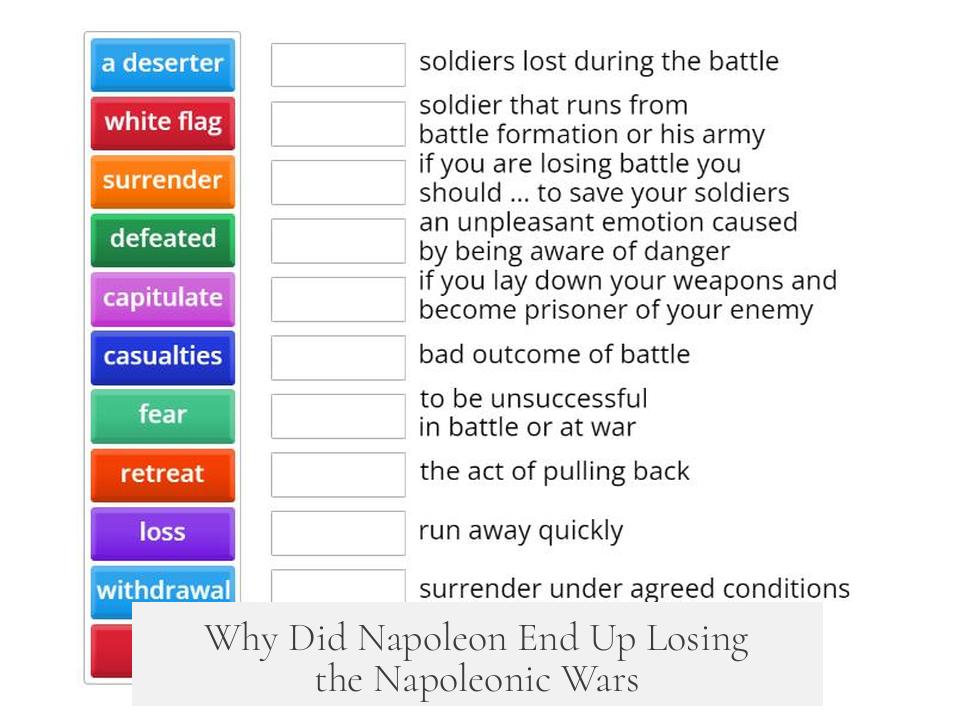
Napoleon lost the Napoleonic Wars due to a perfect storm of military blunders, environmental hardships, political opposition, and his own diminishing leadership qualities. Let’s unravel this famous chapter from history, and see how a man who once seemed unstoppable finally came undone.
Imagine being Napoleon at your peak. You’ve conquered much of Europe, and your strategic mind seems infallible. Yet, victory slips away through a chain of causes that, combined, topple the mighty French Empire.
Military and Environmental Factors: The Russian Winter Was No Joke
One of the most critical turning points was the disastrous Russian campaign. Napoleon marched with approximately 450,000 men, but only about 10,000 trudged back home. That’s a staggering loss, and no one likes being on the losing end of those odds.
Why such devastation? The answer lies in logistical nightmares and Mother Nature’s cruel timing. Napoleon’s supply lines stretched across hundreds of miles, becoming so thin that help and resources failed to reach his troops in time. Imagine ordering pizza and getting it after you’ve starved.
To make matters worse, the Russians practiced a ruthless Scorched Earth policy. They burned crops, villages, and anything that could sustain the French army. Whatever the French could have used was turned to ash. This forced Napoleon’s troops deeper into harsh Russian winter conditions with barely any food or shelter.
Geography played a massive role. Russia was **simply too vast and distant for Napoleon to conquer effectively.** The brutal weather, endless plains, and lack of infrastructure made his usual swift maneuvers impossible.
Coalitions and Political Opposition: Europe’s United Front
While Napoleon was famously brilliant on the battlefield, his political troubles piled up fast. Almost every great power in Europe—Britain, Austria, Prussia, and Russia—wanted him defeated and France reduced to its pre-war status. Ever heard the saying, “Don’t put all your enemies on one map”? Well, Napoleon fought against almost all of Europe.
Britain’s geographic advantage came into play here — an island fortress immune to Napoleon’s might. No matter his military genius, he couldn’t directly invade the British Isles. And from there, Britain funded multiple coalitions against France, throwing a wrench in Napoleon’s plans.
Napoleon had to keep fighting or lose his grip on Austria and Prussia. But constant warfare stretched his resources thin and let his enemies learn his strategies, closing the gap in military innovation.
Specific Battles and Tactical Failures: The Curse of the Sunken Road
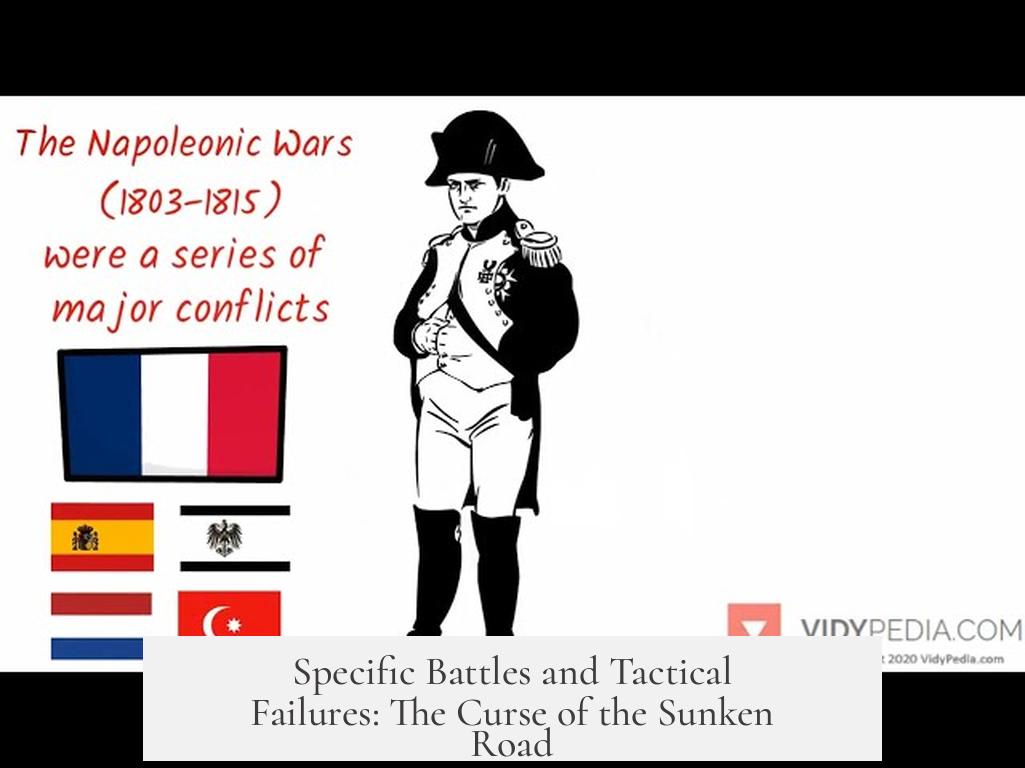
No story about Napoleon’s fall is complete without mentioning the Battle of Waterloo. Victor Hugo notably written about a single, often overlooked detail—the sunken road that shattered the French cavalry charge.
The French cavalry stumbled over this depression in the ground, breaking formation. This little mishap gave the British forces time to recover and launch counterattacks that broke Napoleon’s momentum. Could one small sunken ditch really seal the fate of an empire? Sometimes, history turns on tiny details.
Luck was also a factor. Just as Hitler faced brutal winter and misfortune at Stalingrad, Napoleon’s plans were undermined by bad timing and overconfidence. The mix of hubris and chance often shapes the outcomes of wars far more than any grand design.
Extra Military Engagements Draining Resources: The Spanish Ulcer
Then there’s the so-called “Spanish Ulcer”—the Peninsular War. Napoleon made his brother Joseph King of Spain, expecting the continent to toe the line, especially enforcing his trade blockade against England. Instead, Spain erupted with guerrilla warfare that drained thousands of French troops and sapped their strength.
Troops and veteran leaders tied up in Spain meant fewer soldiers for Napoleon’s infamous Russian campaign. The rebellion wasn’t a simple side-hustle but a resource drain that bled the French military slowly and painfully over years.
Even after the initial conflict, Spain continued to rob Napoleon of valuable troops needed to repel mounting coalitions threatening France itself.
Adaptation by Allied Forces: Learning and Evolving
Napoleon’s success once stemmed from his innovative army corps system, which emphasized speed and flexibility. But his enemies were quick studies. They learned from his tactics, reorganizing their armies to match his swift maneuvers.
This adaptation meant **Napoleon couldn’t secure those dazzling, decisive victories he once relied on.** The allies countered his strengths and made each battle harder to win. The battlefield was no longer his sole domain of genius.
Diplomatic Issues and Economic Warfare: The Continental System Backfired
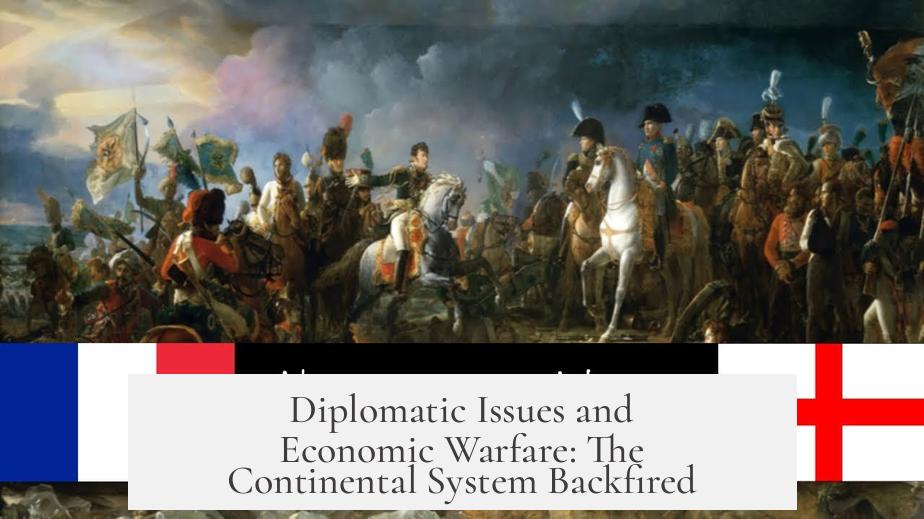
Here’s a diplomatic misstep that hurt Napoleon deeply: the Continental System. It barred trade between continental Europe and England, aiming to strangle Britain economically.
But this blockade enraged many European countries who depended on English goods, especially given England’s booming Industrial Revolution producing cheaper products.
Relations also strained with Russia. Napoleon refused Tsar Alexander a free hand in the Ottoman lands, creating friction. When Russia broke from the Continental System, declaring its own stance due to currency problems and economic hardships, it gave Napoleon reason to invade in 1812. This campaign, as we know, was catastrophic.
Personal and Leadership Factors: Hubris and Isolation
Napoleon’s personal health declined over time. This decline affected his judgment both politically and militarily. Plus, he grew insulated from reality.
He stopped listening to advice from his trusted marshals and officials. Some even resigned, unable to influence his decisions. New officials did little more than follow his orders blindly.
Hubris crept in. Napoleon believed in his own invincibility and dismissed warnings, missing key strategic insights that might have changed the course of history.
Changing Nature of War and Politics: Total War and Resolute Allies
The way wars were fought also changed during Napoleon’s reign. Early campaigns followed 18th-century diplomatic styles, often settling conflicts quickly.
But by 1813, Europe had shifted to a “total war” mindset. The allies no longer sought quick peace but were willing to endure setbacks and wait patiently for another chance to strike.
This relentless political resolve reduced Napoleon’s chances of exploiting any victory he achieved. His famed techniques were becoming obsolete against an enemy united not only militarily but politically determined to end his rule.
Final Thoughts
Napoleon’s downfall wasn’t the result of one single failure. It was a cocktail of bad timing, harsh winters, extended supply lines, relentless enemies, diplomatic miscalculations, draining side conflicts, evolved tactics of his adversaries, and his own physical and mental decline.
Does this make Napoleon a victim of circumstance or a victim of his own overreach? Probably both. His story is a powerful reminder: even the greatest leaders face limits imposed by environment, politics, and the unpredictable twists of fate. Sometimes, losing isn’t about lacking skill—it’s about a complex, relentless tide of challenges no one can truly control.
“To understand defeat, one must look beyond the battlefield.”
So next time you hear about Napoleon’s final defeat, remember—those frozen Russian plains, the guerrilla fighters in Spain, the coalitions determined to end his dominance, and a sunken road all played their parts. History isn’t made by heroes alone; it’s shaped by countless factors weaving a story more intricate than any one man.
